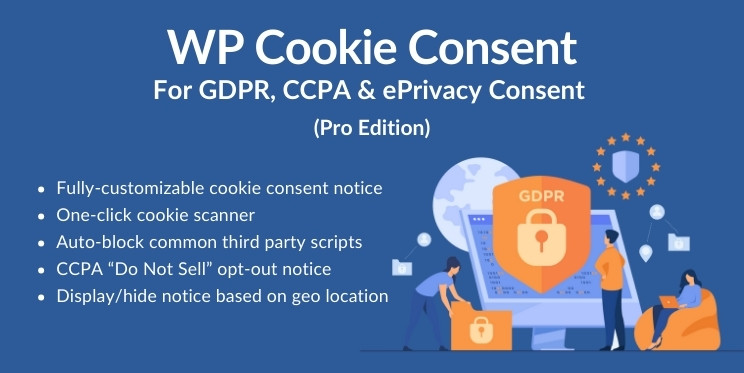What Are Tracking Cookies? – A Beginner’s Guide For 2024
Want to understand the concept behind tracking cookies?
When a user visits a website, the website often sends a request to the user’s browser to store a small text file, known as a cookie, on their device.
This cookie contains information such as user preferences, session data, and unique identifiers.
While many cookies serve various purposes, tracking cookies are specifically designed to monitor and record a user’s online behavior.
They enable websites and third-party advertisers to collect data on visited pages, clicked links, and other activities, thereby creating a complete profile of the user’s interests and habits.
Now that we’ve understood the basics, let’s move ahead to the main content.
What are Tracking Cookies?
Tracking cookies are small pieces of data stored on a user’s web browser by websites they visit.
These cookies serve various purposes, including helping websites function properly, remembering user preferences, and enhancing the overall online experience.
Specifically, tracking cookies, a subtype of internet cookies, are extensively used for analytics and advertising. They track users as they navigate the web, collecting information about their online habits, past website visits, and purchase history.
What are Third-Party Cookies?
Unlike first-party cookies set by the website operator, third-party cookies are placed on browsers by external services such as Facebook or Google Adsense. These cookies are prevalent in advertising and analytics.
In many instances, tracking cookies operate as third-party cookies, as they’re installed on a website by an external entity. Their primary function is to accumulate data to facilitate advertising and retargeting efforts.
While they contribute to enhancing the online experience, data privacy laws such as GDPR and CCPA regulate their usage. This is to protect the privacy of website visitors or users and help them securely protect their data.
What Information Do Tracking Cookies Collect?
Tracking cookies follows users across the web, gathering data such as websites visited, products purchased, and interactions with advertisements.
This provides companies with information regarding users’ actions and helps them take the necessary actions to improve their marketing strategy.
Examples of the information stored include the type of device used, user preferences, IP address, email address, browsing history, and more.
This data is valuable for targeted advertisements, providing users with content aligned with their interests.
Are Tracking Cookies Dangerous?
Tracking cookies are not inherently dangerous when used within legal and compliance frameworks. They do not harm users’ devices and contribute positively to the online experience.
However, concerns arise due to the tracking of user behavior and data storage. In order to overcome this, website owners must provide information and offer control to users to address privacy concerns. This way, the website can also comply with the various global laws.
Does Your Website Use Tracking Cookies?

Detecting tracking cookies on your website involves manual cookie audits or automated tools. By inspecting your website’s cookies, you can identify their purpose and categorize them into essential, performance, analytics, advertising, social networking, or unclassified.
There are multiple tools like WP Cookie Consent that offer exclusive features like cookie scans that can help streamline this process. This WordPress plugin helps you to understand and manage the cookies used on your website.
GDPR and CCPA on Tracking Cookies
The General Data Protection Regulation (GDPR) requires active opt-in consent from users before placing tracking cookies on their browsers.
Additionally, users have the right to request the deletion of their data, emphasizing the importance of user consent and robust data protection measures.
Contrarily, the California Consumer Privacy Act (CCPA) mandates the collection of personal information, including data from tracking cookies. Websites must provide opt-out mechanisms for users concerning the use of these cookies for targeted advertising.
How to Make Your Website Legally Compliant
Obtaining user consent is a critical aspect of using tracking cookies. Compliance solutions like the WP Cookie Consent plugin enable website owners to configure settings based on user location, block cookies, and provide users with a customized cookie banner, policy, and consent preference center.
WP Cookie Consent is an all-in-one solution that helps you to create a fully customizable cookie consent banner and comes with features like a preview banner, cookie scan, geo-targeting, consent log, opt-out request, and much more.
This plugin helps you stay legally compliant with various global laws such as GDPR, CCPA, etc.
FAQ
Tracking cookies is legal when used in compliance with data privacy laws, which typically require informing users, obtaining consent, and providing opt-out options.
Tracking cookies can store various user information, including device type, name, preferences, IP address, email address, browsing history, and interactions with advertisements.
Tracking cookies is not inherently dangerous. Still, concerns arise about privacy, necessitating the safeguarding of user information and compliance with data privacy laws.
Conclusion
Websites deploy tracking cookies to enhance user experiences and refine marketing strategies.
Responsible use involves addressing privacy concerns, complying with global data privacy laws, and employing compliance solutions to ensure the ethical and legal deployment of cookies.
WordPress plugins like WP Cookie Consent help address legal complications by allowing you to build a unique cookie consent banner for your website. Following the banner, they also provide various features like script blocker, consent log, geo-targeting, and much more.
Your website visitors can provide consent using the cookie banner, only after which you’ll be able to track the user data. This way, you’re not only staying legally compliant but also gaining their trust.
If you’ve liked reading this article, check out our other engaging articles as well:
- What Are Session Cookies?
- How To Add A Cookie Consent Popup To Your WordPress Website?
- What is a Cookie Consent Manager? – An Ultimate Guide
Want a feature like cookie scanning? Grab the WP Cookie Consent plugin now!